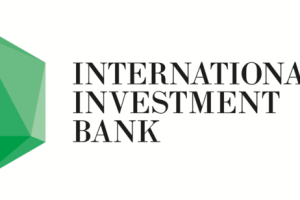Alătură-te comunității noastre!
Vezi cele mai recente știri & informații din piața de capital

The monumental consequences of the coronavirus pandemic are threatening economic growth and the financial situation of businesses and private households across the entire globe.
In order to cushion these effects, governments have announced economic stimulus packages, and central banks have once again eased their monetary policy considerably in recent weeks.
However, while traditional monetary policy measures, such as interest rate cuts and bond purchases on the secondary market by central banks, are also employed, the focus has recently shifted to a concept that has always been the subject of debate: helicopter money.
What is helicopter money?
The economic theory of monetarism assumes that there is a connection between the amount of money available within an economic area and that area’s economic growth.
According to this model, the central bank is supposed to increase the supply of money when the economy is in a downturn and hardly reacts to interest rate changes.
To illustrate this principle, in 1969 the economist and Nobel Prize winner Milton Friedman used the image of a helicopter dropping money to stimulate consumption, which in turn should lead to a new balance in the economic system.
The closest real-world approximation to this image would be a variant in which, for example, the European Central Bank (ECB) directly transfers a monthly sum to every citizen in the currency area until inflation reaches the 2-per-cent target set by the Bank.
In contrast to conventional quantitative easing (QE), in which the money supply is controlled by buying and selling assets, helicopter money is newly created money that can no longer simply be withdrawn from the cycle.
A tax cut financed by the gradual purchase of government debt by the central bank would have the same effect. However, this version of helicopter money reveals a central point of criticism the measure faces.
Why it sounds good
Interest rates in the eurozone have recently already reached a record low and, in contrast to the US Federal Reserve, the ECB has had little margin for interest rate cuts. The eurozone’s ultra-loose monetary policy has not shown the desired effect in recent years: despite favourable conditions for loans, investment was limited and inflation was far too low to lend the economy any dynamism.
Consumption, on the other hand, continues to be a major support of the weak economic growth. The baseline is therefore equal to the scenario described by Milton Friedman, in which money from heaven could help.
The cons
Nevertheless, many questions remain unanswered for now. Firstly, there is a legal problem: In order to ensure the central bank’s independence, it is prohibited from directly financing national debt on a large scale – as Helicopter Money would do, for example, by way of a tax cut. Moreover, there is hardly any experience with an irreversible expansion of the money supply on this scale.
Finally, economists argue that, in the current situation, helicopter money would trigger hyperinflation and ignore the basic problem of the effects of the corona crisis, making demand the primary stimulus.
However, the impending economic slump was triggered by a supply shock, as supply chains have been disrupted and consumers have been kept from spending money by the measures to contain the pandemic, rather than by lack of money.
Supporters of helicopter money have placed their hopes in the large-scale evaluation of ECB policy ordered by the new monetary watchdog Christine Lagarde. In mid-March, however, Lagarde now announced that the review and any resulting changes would be postponed for at least six months, owing to the Corona crisis.
With the courtesy of Erste Asset Management. The article first appeared here.
[ajax_load_more]









Vezi cele mai recente știri & informații din piața de capital